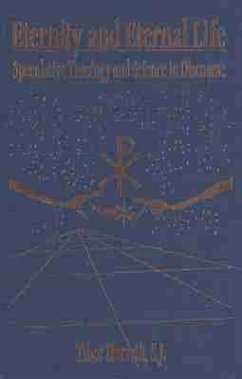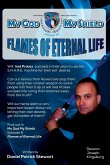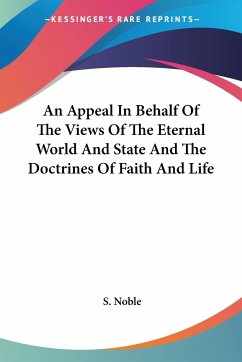The Newtonian concept of time has been changed by Einsteinian insight. Yet the Einsteinian world view might make it difficult to appreciate traditional concepts of eschatology, like heaven and hell, death and immortality, life after death and resurrection, last day and final judgments, because these expressions presuppose a pre-Einsteinian view of the universe. Since theology cannot remain unaffected by the new research in concepts of time, Eternity and Eternal Life tries to express the eschatological faith of the Church by using the time language of our age. To achieve this it provides an overview on the research in the nature of time done in geology, cosmology, physics, biology, psychology, sociology, history and philosophy and proposes a notion of time for "timely" Christology and for "timely" eschatology. By using the singularity event as literary form, Horvath scrutinizes how Christ's time can lead to the times of all existing realities, through death to "eternity." This is a pioneering work, one that needs to be tested in the community of interested readers. It is a communal search for an understanding of life, death and eternal life, not only in the light of abstract ideas and cultural linguistic doctrines in the world of religions, but also in the light of science and especially of a person as the horizon of understanding for both time and eternity. Christ as the eschatological union of time and eternity becomes the work's unifying focus and its paradigm, which solves recognized problems and opens our minds to new ones.
Hinweis: Dieser Artikel kann nur an eine deutsche Lieferadresse ausgeliefert werden.
Hinweis: Dieser Artikel kann nur an eine deutsche Lieferadresse ausgeliefert werden.



![Urgent Appeals to the Unsaved, to Flee From the Wrath to Come and Lay Hold on Eternal Life [microform] Urgent Appeals to the Unsaved, to Flee From the Wrath to Come and Lay Hold on Eternal Life [microform]](https://bilder.buecher.de/produkte/65/65499/65499669m.jpg)




